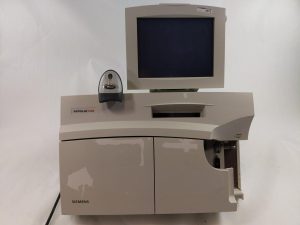Hospital Blood in Texas DWI Cases (Part 1)
 I saw a Nick Saban quote online that addresses that there are few choices in life when we want to succeed. There are not many ways to do things the right way, usually only one way works. Coach Saban said “[w]e have a younger generation that isn’t told no or told exactly how to do it. As a consequence, many young people have this illusion they can do what they want. The fact of the matter is that if you want to be good, you really don’t have a lot of choices. It takes what it takes. You have to do what you have to do to be successful.”
I saw a Nick Saban quote online that addresses that there are few choices in life when we want to succeed. There are not many ways to do things the right way, usually only one way works. Coach Saban said “[w]e have a younger generation that isn’t told no or told exactly how to do it. As a consequence, many young people have this illusion they can do what they want. The fact of the matter is that if you want to be good, you really don’t have a lot of choices. It takes what it takes. You have to do what you have to do to be successful.”
Nowhere is this more important that in chemical testing blood, breath, DNA and other samples in order to convict or acquit them of criminal accusations that could lead to prison, jail or probation. Over the last few years, Texas has taken forensic science much more seriously after a white guy named Michael Morton was proved to have been unlawfully convicted of his wife’s death and served 25 years in prison for a crime he did not commit. For this, we have the Michael Morton discovery act which ensures an open-file, proactive discovery policy in criminal cases.
We also have a Texas forensic science commission to push our crime laboratories to be the best they can possibly be. This is done by using correct procedures and documenting correct procedures time after time. As for DWI, blood is tested by the Department of Public Safety in its crime laboratory using a gas chromatograph that I will discuss later, but has narrower issues and error rates than hospital blood testing. It is normally operator error that will make a forensic blood test drawn at a Department of Public Safety lab unreliable. There, chemists are supervised by other chemists in a forensic setting with high standards and procedures to follow. More on that later.
 Sherman & Plano, TX Criminal Defense Lawyer Blog
Sherman & Plano, TX Criminal Defense Lawyer Blog

